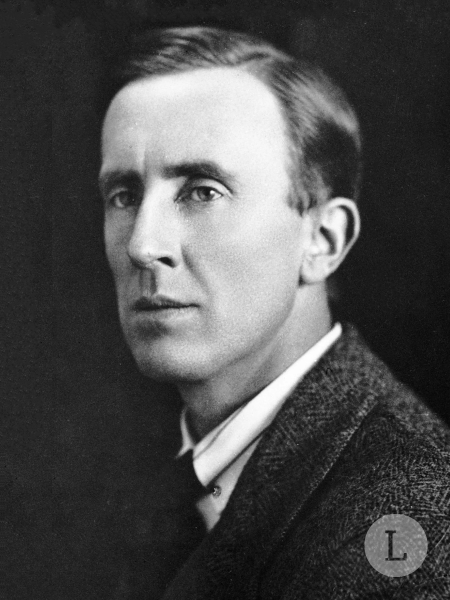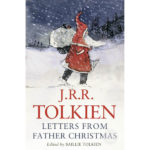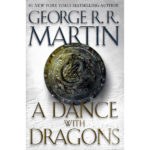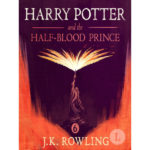Smith of Wootton Major is a novella by J.R.R. Tolkien that is often overlooked in discussions of his works, but nevertheless stands as an important and enduring contribution to the fantasy genre. The novella is notable for its emphasis on the power of imagination and creativity, as well as its exploration of themes of heroism, transformation, and transcendence.
BOOK INFO
version: CLASSIC, EBOOK, AUDIOBOOK
number of pages: 57
literary movement: MODERNISM
literary genre: FANTASY
1st edition: 1967
years of writing: 1960 - 1964
SUMMARY
At its core, Smith of Wootton Major is a fairy tale that is set in a fictionalized version of rural England. The story begins with the introduction of the village of Wootton Major, which is known for its celebrations and festivals. Every 24 years, the village holds a special festival known as the Great Cake Feast, during which a magical cake is baked and consumed, and a lucky few are chosen to enter the land of Faery and partake in a special feast.
The protagonist of the story is Smith, a young boy who is chosen to enter Faery and embarks on a journey that takes him through a series of strange and magical lands. As he progresses through the land of Faery, Smith encounters a variety of strange and mystical creatures, including dragons, giants, and fairies. He also discovers that he has a special gift for imagination and creativity, which allows him to connect with the magical beings and help to solve problems and conflicts.
Through the character of Smith, Tolkien explores the power of the human imagination and its ability to connect us with deeper truths and mysteries. Smith’s journey through Faery is a metaphor for the journey of self-discovery and personal growth, and his encounter with the magical beings is a reminder of the importance of engaging with the natural world and the mysteries of the universe.
One of the key themes of Smith of Wootton Major is the nature of heroism and the transformational power of personal growth. Smith is initially portrayed as a shy and reserved boy, but as he progresses through Faery and encounters new challenges, he discovers new depths of courage and strength. Through his experiences, Smith is transformed into a hero, a figure who embodies the virtues of compassion, generosity, and wisdom.
Another important theme of the novella is the nature of transcendence and the possibility of spiritual transformation. Smith’s journey through Faery is a metaphor for the spiritual journey of life, and his encounter with the magical beings is a reminder of the deeper realities that lie beyond our mundane world. Through his experiences, Smith is able to transcend the limitations of his ordinary life and connect with a deeper sense of meaning and purpose.
MAIN CHARACTERS
Nokes
A local farmer who serves as a rival to Smith. He is jealous of Smith’s talent for storytelling and tries to compete with him in the baking of the Great Cake.
Alf
A craftsman and a friend of Smith’s. He is known for his skill in carving and is also chosen to enter Faery during the Great Cake Feast.
The Cook
The mysterious figure who bakes the Great Cake and is responsible for the magic that allows certain individuals to enter the land of Faery.
Giant
A character that Smith encounters on his journey through Faery. He is a giant of immense size and strength, but is kind and friendly to Smith.
Fairy Queen
The queen of the fairies who presides over the feast that takes place in Faery.
North polar Bear
A talking bear that Smith encounters on his journey. He is wise and gives Smith advice on how to navigate the dangers of the world of Faery.
These characters are all important to the story of Smith of Wootton Major, and each one contributes to the overall themes of the novella, including the power of the imagination, the importance of tradition and folklore, and the possibility of transcendence and spiritual growth.
No doubt some who deserved to be asked were overlooked, and some who did not were invited by mistake; for that is the way of things, however careful those who arrange such matters may try to be.
JOHN RONALD ReUEL TOLKIEN
TOP 10 POINTS
- The Great Cake Feast: The story centers around a special festival known as the Great Cake Feast, which is held every 24 years in the village of Wootton Major. During the feast, a magical cake is baked and consumed, and a lucky few are chosen to enter the land of Faery and partake in a special feast.
- Smith’s Journey through Faery: The protagonist of the story is a young boy named Smith, who is chosen to enter Faery and embarks on a journey that takes him through a series of strange and magical lands. Along the way, he encounters a variety of strange and mystical creatures, including dragons, giants, and fairies.
- The Power of Imagination: One of the key themes of the story is the power of the human imagination and its ability to connect us with deeper truths and mysteries. Smith’s gift for imagination and creativity is what allows him to connect with the magical beings and help to solve problems and conflicts.
- Transformation and Heroism: Through the character of Smith, Tolkien explores the nature of heroism and the transformational power of personal growth. Smith is initially portrayed as a shy and reserved boy, but as he progresses through Faery and encounters new challenges, he discovers new depths of courage and strength.
- The Nature of Faery: Tolkien’s depiction of Faery is rich and detailed, and the land is populated by a variety of strange and mystical creatures. The depiction of Faery is a metaphor for the mysterious and transcendent aspects of reality that lie beyond our ordinary experience.
- The Importance of the Natural World: One of the recurring themes of the story is the importance of engaging with the natural world and the mysteries of the universe. Smith’s journey through Faery is a reminder of the deeper realities that lie beyond our mundane world, and of the importance of connecting with these deeper truths.
- The Magic of Storytelling: The novella is itself a celebration of the power of storytelling and the imagination. The story is filled with rich and detailed descriptions of the landscapes, creatures, and characters that populate the story, and Tolkien’s language is lyrical and evocative.
- The Role of Tradition: The festival of the Great Cake Feast is an example of the role of tradition in society and the importance of maintaining cultural practices and customs. The festival is a reminder of the importance of celebrating life and the mysteries of the universe.
- The Nature of Time: The fact that the Great Cake Feast is held every 24 years is a reminder of the cyclical nature of time and the importance of recognizing the passing of the seasons and the cycles of life.
- The Possibility of Transcendence: Through Smith’s journey through Faery, Tolkien offers a vision of the possibility of spiritual transcendence and the idea that there are deeper truths and mysteries beyond our ordinary experience. The novella is a reminder of the importance of engaging with these deeper truths and of the power of the human imagination to connect us with them.
Overall, Smith of Wootton Major is a rich and complex work that explores a variety of important themes and ideas. Through the character of Smith and his journey through Faery, Tolkien offers a profound meditation on the power of imagination, the nature of heroism and transformation, and the possibility of spiritual transcendence. While it is often overshadowed by Tolkien’s more famous works, Smith of Wootton Major remains an important and enduring contribution to the genre of fantasy literature, and a testament to Tolkien’s enduring literary legacy.
ABOUT WRITER

J.R.R. Tolkien, full name John Ronald Reuel Tolkien, was an English writer, poet, and academic who is best known for his fantasy novels The Hobbit and The Lord of the Rings. He was born in Bloemfontein, South Africa on January 3, 1892, but moved to Birmingham, England with his family when he was three years old. His father, Arthur Tolkien, was an English bank manager and his mother, Mabel Tolkien, was a talented artist and musician.



